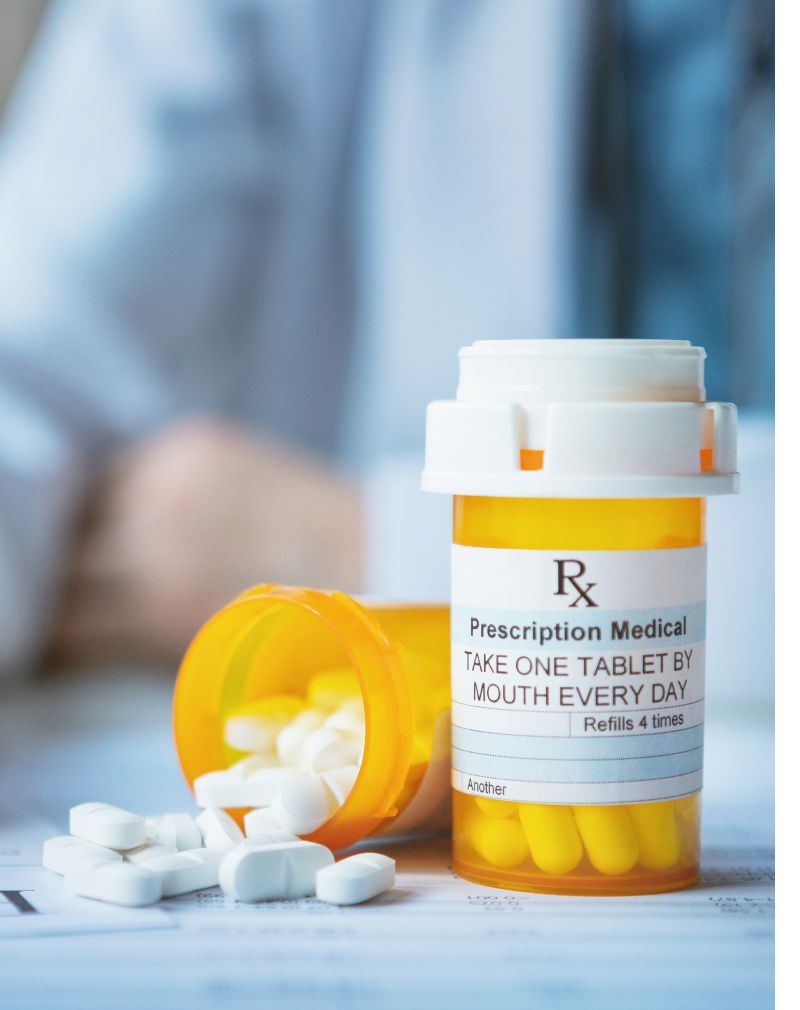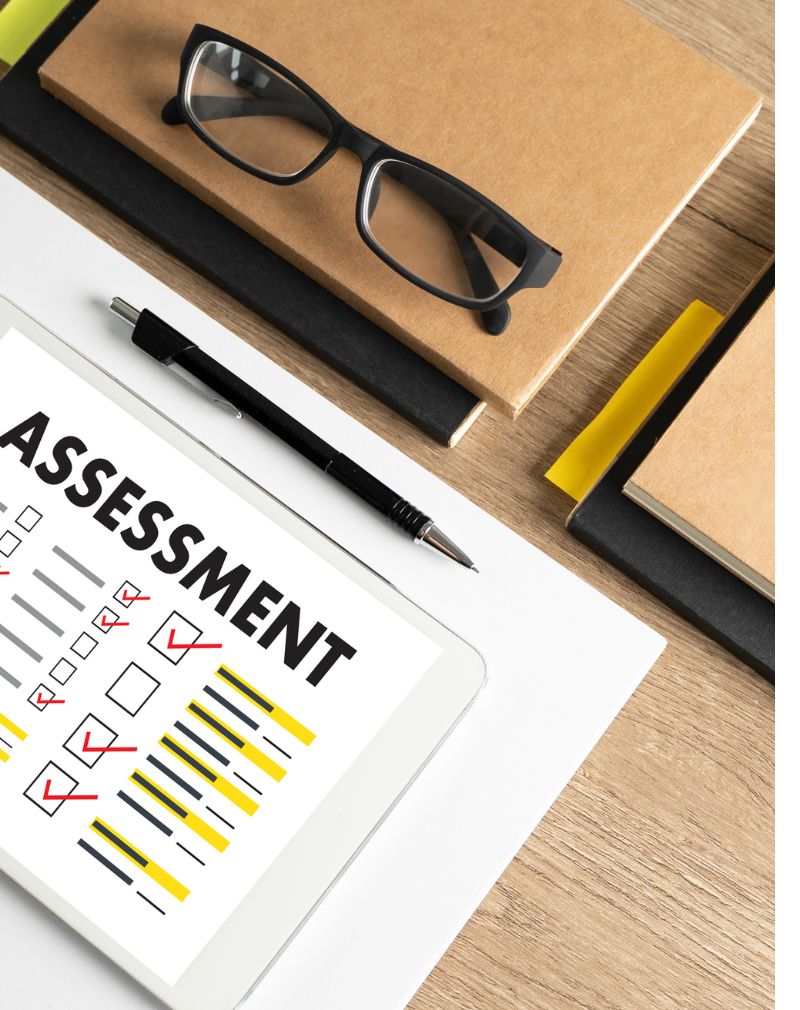Depression is a common mental health condition that affects millions of people around the world, including many in the UAE. It is characterized by persistent feelings of sadness, loss of interest or pleasure in activities once enjoyed, and changes in sleep or appetite. While depression can be a debilitating condition, it is important to remember that it is treatable. With the right support and treatment, people with depression can live full and productive lives.
Prevalence of depression in the UAE
According to a recent study by the World Health Organization, an estimated 6.5% of adults in the UAE experience depression at some point in their lives. This number is higher than the global average of 5.3%. There are a number of factors that may contribute to the higher prevalence of depression in the UAE, such as social stigma, cultural expectations, and rapid economic and social change.
Stigma surrounding mental health in the UAE
There is a significant stigma surrounding mental health in the UAE, which can prevent people from seeking help for depression. This stigma is often rooted in cultural beliefs and misconceptions about mental illness. It is important to challenge these misconceptions and create a more open and understanding environment for people with mental health conditions.
What causes depression?
There is no single cause of depression. It is likely caused by a combination of factors, including:
- Biological factors: These factors include changes in brain chemistry, genetics, and medical conditions.
- Psychological factors: These factors include stress, negative thinking patterns, and low self-esteem.
- Social factors: These factors include poverty, unemployment, social isolation, and trauma.
Symptoms of depression
The symptoms of depression can vary from person to person, but they may include:
- Emotional symptoms: Feeling sad, hopeless, anxious, or irritable
- Physical symptoms: Changes in sleep or appetite, fatigue, aches and pains
- Behavioral symptoms: Withdrawing from social activities, neglecting responsibilities, difficulty concentrating
Impact of Depression on Daily Life
Depression can severely impact one’s personal and professional life, affecting relationships, work performance, and overall well-being. Without treatment, it can lead to a range of emotional and physical problems.
Living with depression
Living with depression can be challenging, but there are things you can do to manage your symptoms and improve your quality of life. Here are few points that can help:
- Build a support system: Talk to friends, family, or a support group about what you are going through.
- Practice self-care: Engage in activities that you enjoy, get regular exercise, and eat a healthy diet.
- Avoid harmful coping mechanisms: Stay away from unhealthy activities like excessive alcohol use, drug use, and isolating yourself.
- Find meaning and purpose: Doing something meaningful can give you a sense of purpose and boost your mood.
Staying positive and hopeful
It can be difficult to stay positive and hopeful when you are living with depression, but it is not impossible. Try focusing on the things that you can control, like seeking treatment, practicing self-care, and building a support system. It is also important to be patient with yourself and remember that it takes time to heal.
Treatment and Management
We, at the American Wellness Center, offer a range of treatment options tailored to our clients’ needs. Our Psychiatry department provides medication management, considering the most effective and suitable options for each individual. Additionally, our Psychology services offer therapy sessions utilizing various evidence-based approaches, such as Cognitive Behavioral Therapy (CBT), to help clients understand their thoughts and behaviors and develop coping strategies. Our team of professionals is dedicated to supporting each individual through their journey to recovery.
Seeking help for depression
If you are experiencing symptoms of depression, it is important to seek help from a qualified healthcare professional. Early diagnosis and treatment can help prevent depression from worsening and improve your quality of life.
There are a number of treatment options available for depression in the UAE, including:
- Medication: Antidepressant medications can help to regulate brain chemicals that are associated with mood.
- Psychotherapy: This type of therapy involves talking to a therapist about your thoughts, feelings, and behaviors.
- Lifestyle changes: Eating a healthy diet, getting regular exercise, and getting enough sleep can all help to improve your mood.
Recognizing when to seek help is a crucial step towards recovery. If you or someone you know is experiencing symptoms of depression, it’s important to reach out to a professional. We, at American Wellness Center, Dubai, are here to offer the support and care needed to navigate these challenges.
What to expect from therapy
Therapy can be a very helpful tool for managing depression. In therapy, you will work with a therapist to develop coping mechanisms, identify negative thinking patterns, and learn how to manage stress. Therapy is a collaborative process, and it is important to find a therapist that you feel comfortable with and trust.
Understanding and treating depression is vital to fostering a healthy community in Dubai. The American Wellness Center remains committed to offering comprehensive mental health services, inviting anyone in need to contact us for support or more information.
What is depression and how to identify the signs
Depression, also known as major depressive disorder (MDD), is a common mental health condition characterized by persistent feelings of sadness, hopelessness, and a lack of interest or pleasure in activities. It can have a significant impact on a person’s daily life, relationships, and overall well-being. Depression is not just a temporary bout of sadness; it is a medical condition that may require treatment.
Identifying the signs of depression can be challenging because symptoms can vary from person to person and may range from mild to severe. However, there are some common signs and symptoms to watch for:
- Persistent Sadness: A key feature of depression is an overwhelming and persistent feeling of sadness or emptiness. This feeling can last for weeks, months, or even years.
- Loss of Interest: People with depression often lose interest or pleasure in activities they once enjoyed, including hobbies, socializing, and work.
- Fatigue: Constant tiredness or a lack of energy is a common symptom of depression. Even simple tasks may feel exhausting.
- Changes in Sleep Patterns: Depression can lead to changes in sleep, such as insomnia (difficulty falling or staying asleep) or hypersomnia (excessive sleep).
- Changes in Appetite or Weight: Depression can affect appetite, leading to significant weight loss or gain. Some people may lose interest in food, while others may turn to it for comfort
- Feelings of Worthlessness or Guilt: Individuals with depression often have low self-esteem and may experience overwhelming guilt or feelings of worthlessness.
- Difficulty Concentrating: Depression can impair concentration, decision-making, and memory, making it challenging to perform daily tasks or work.
- Irritability: Some people with depression become easily irritable, which can strain relationships.
- Physical Symptoms: Depression can manifest physically, including aches, pains, headaches, and digestive problems that don’t have a clear physical cause.
- Thoughts of Death or Suicide: In severe cases, depression can lead to thoughts of death or suicide. If someone expresses suicidal thoughts or intentions, it’s crucial to seek help immediately.
- Social Withdrawal: Individuals with depression may withdraw from social interactions, isolating themselves from friends and family.
It’s important to note that experiencing one or more of these symptoms doesn’t necessarily mean someone has depression. However, if these symptoms persist for an extended period (usually at least two weeks) and interfere with daily life, it’s advisable to seek professional help.
Early diagnosis and intervention can significantly improve the outcome for people with depression.
What can be causes of Depression?
It’s important to note that each person’s experience with depression can be unique, and what causes depression in one individual may not be the same for another. Some common factors that can contribute to the development of depression include:
- Biological Factors:
- Genetics: A family history of depression can increase one’s risk. Brain Chemistry: Imbalances in neurotransmitters (chemical messengers in the brain) can play a role.
- Hormonal Changes: Certain hormonal changes, such as those related to pregnancy, childbirth, or menopause, can trigger depression.
- Psychological Factors:
- Trauma and Stress: Traumatic events, such as abuse, loss of a loved one, or a major life change, can lead to depression.
- Chronic Stress: Long-term stress can increase the risk of depression.
- Low Self-Esteem: Negative self-perception and low self-esteem can contribute to depressive feelings.
- Personality Traits: Certain personality traits, like being highly self-critical or having a pessimistic outlook, may increase vulnerability.
- Environmental Factors:
- Social Isolation: Lack of social support or feelings of loneliness can contribute to depression.
- Substance Abuse: Alcohol or drug misuse can both trigger and exacerbate depression.
- Financial Problems: Economic difficulties can lead to stress and depression.
- Relationship Issues: Conflicts, breakups, or unhealthy relationships can be factors.
- Medical Conditions:
- Chronic Illness: Some medical conditions, like chronic pain or cancer, can be associated with depression.
- Medications: Certain medications may have depression as a side effect.
- Neurological Disorders: Conditions affecting the brain, like multiple sclerosis or Alzheimer’s disease, can contribute to depression.
- Life Events: Significant life changes or losses, such as the death of a loved one, divorce, or job loss, can trigger depressive episodes.
- Personality Factors: Certain personality traits, such as a tendency to ruminate or be overly self-critical, can increase susceptibility to depression
- Lack of Coping Skills: Insufficient coping mechanisms for dealing with stress and difficult emotions can make a person more prone to depression.
- Family History: A family history of depression or other mental health disorders can increase the risk.
It’s essential to recognize that depression is a treatable condition. Various therapeutic approaches, such as psychotherapy (talk therapy), medication, lifestyle changes, and support from friends and family, can be effective in managing and treating depression. If you or someone you know is struggling with depression, it’s important to seek professional help from a mental health provider who can provide an accurate diagnosis and develop an appropriate treatment plan.
When should you seek external help to treat depression:
Seeking professional help for depression is essential when you or someone you know is experiencing persistent and significant symptoms that interfere with daily life, work, relationships, or overall well-being. Here are some guidelines for when to seek professional help:
- Duration and Severity of Symptoms: If you’ve been experiencing symptoms of depression, such as persistent sadness, loss of interest in activities, or changes in sleep and appetite, for two weeks or longer, it’s a good indicator that you should seek professional help. Depression is diagnosed when these symptoms persist for an extended period. The severity of symptoms also matters. If your symptoms are severe and significantly impacting your ability to function or if you have thoughts of self-harm or suicide, it’s crucial to seek help immediately. These are serious signs that require urgent attention.
- Impairment in Daily Life: If your depression symptoms are interfering with your daily life, work, relationships, or personal well-being, professional help is warranted. This may include difficulty concentrating, frequent absenteeism from work or school, or strained relationships due to mood changes.
- Recurring Episodes: If you have a history of depression or have experienced multiple episodes in the past, it’s a good idea to reach out to a mental health professional. Recurring episodes may indicate a need for ongoing treatment and support.
- Physical Symptoms: Sometimes, depression can manifest with physical symptoms like unexplained aches, pains, or gastrointestinal problems. If you’re experiencing these physical symptoms without an apparent physical cause, consult a healthcare provider to rule out underlying medical conditions and explore the possibility of depression.
- Self-Help Efforts Are Ineffective: If you’ve tried self-help strategies, such as exercise, relaxation techniques, and talking to friends or family, and your symptoms persist or worsen, it’s time to seek professional guidance.
- Concerns Raised by Others: Sometimes, friends, family members, or coworkers may express concern about your well-being or notice changes in your behavior. Take these concerns seriously and consider seeking professional help.
- Increased Substance Use: If you’re using alcohol, drugs, or other substances to cope with depression, it’s a sign that you may need professional assistance to address both the depression and any substance use issues.
- Loss of Hope or Purpose: If you’re experiencing a profound sense of hopelessness, worthlessness, or a loss of purpose in life, it’s essential to seek help. These feelings can be indicative of severe depression and require intervention.
How depression effects your life
Depression can have far-reaching effects on personal life and hinder personal growth in various ways. It’s important to understand these complications to appreciate the importance of seeking help and effective treatment. Here are some ways in which depression can impact personal life and hinder growth:
- Strained Relationships: Depression often leads to emotional withdrawal, irritability, and a lack of interest in social interactions. This can strain relationships with friends, family members, and romantic partners. People with depression may unintentionally push away their loved ones, leading to feelings of isolation and loneliness.
- Work and Academic Performance: Depression can affect cognitive functioning, making it difficult to concentrate, make decisions, and perform well at work or in school. This can lead to absenteeism, decreased productivity, and potential job loss or academic difficulties.
- Physical Health: Depression can have negative effects on physical health. People with depression may neglect self-care, including proper nutrition and exercise, which can lead to health problems. Additionally, depression has been linked to an increased risk of developing chronic medical conditions, such as heart disease and diabetes.
- Substance Abuse: Some individuals with depression may turn to alcohol or drugs to cope with their emotional pain. This can lead to substance abuse issues and further complicate the treatment of both depression and addiction.
- Loss of Motivation and Goals: Depression often saps one’s motivation and ambition. People may lose interest in pursuing their goals, whether they are personal, educational, or professional. This can result in a sense of stagnation and unfulfilled potential.
- Financial Difficulties: Decreased work performance and absenteeism due to depression can lead to financial strain. In severe cases, job loss may occur, exacerbating financial stress.
- Negative Self-Image: Depression often leads to low self-esteem and negative self-perception. This can make it challenging to develop a healthy self-concept and may prevent personal growth and self-improvement.
- Suicidal Thoughts and Behaviors: In severe cases, depression can lead to thoughts of self-harm or suicide, which is a life-threatening complication. This underscores the urgency of seeking help for depression.
- Reduced Quality of Life: Overall, depression can significantly reduce a person’s quality of life, making it difficult to find joy and satisfaction in everyday activities and experiences.
It’s important to remember that depression is a treatable condition, and recovery is possible with the right support and treatment. Seeking professional help, such as therapy and, in some cases, medication, can effectively address depression and its associated complications. Additionally, lifestyle changes, such as regular exercise, a balanced diet, and stress management techniques, can complement treatment and support personal growth.
How Psychiatrists help: (Step by step guide):
Psychiatrists are medical doctors who specialize in the diagnosis, treatment, and prevention of mental health disorders, including depression.
When you seek treatment from a psychiatrist for depression, here is what you can typically expect in terms of assessment and treatment:
- Assessment: The first step in treating depression with a psychiatrist is a comprehensive assessment. During this assessment, the psychiatrist will gather information about your symptoms, medical history, and any relevant family history of mental health issues. They may use standardized depression screening tools and conduct a thorough interview to understand the nature and severity of your symptoms.
- Diagnosis: Based on the assessment, the psychiatrist will make a diagnosis of depression. They will determine whether it’s a major depressive disorder, persistent depressive disorder (formerly known as dysthymia), or another form of depression. The diagnosis helps guide treatment decisions.
- Medication Evaluation: Psychiatrists are the only mental health professionals who can prescribe medication. If the psychiatrist believes that medication may be beneficial for your depression, they will discuss the options with you. Common medications for depression include antidepressants like selective serotonin reuptake inhibitors (SSRIs), serotonin-norepinephrine reuptake inhibitors (SNRIs), and others. The psychiatrist will prescribe the medication they believe is most suitable for your symptoms and monitor your response to it.
- Medication Management: Once you start taking medication, the psychiatrist will monitor your progress and adjust the dosage or type of medication as needed. This may involve regular follow-up appointments to assess your symptoms, side effects, and overall well-being. Medication management is essential to ensure that you receive the most effective treatment with the fewest side effects.
- Psychotherapy Recommendations:
- In many cases, psychiatrists will recommend psychotherapy (talk therapy) in addition to medication. They may refer you to a psychologist, therapist, or counselor who can provide therapy sessions. Therapy, such as cognitive-behavioral therapy (CBT), interpersonal therapy (IPT), or psychodynamic therapy, can complement medication and help you address the underlying causes of your depression.
- The choice of therapy from a psychologist will depend on factors such as the individual’s specific symptoms, preferences, and treatment goals. In many cases, therapists may use a combination of these approaches to address depression comprehensively. The goal of therapy is to help individuals understand and manage their depression, develop coping skills, and make lasting improvements in their mental and emotional well-being.o Holistic Assessment: Psychiatrists often take a holistic approach to treatment. This means considering not only medication and therapy but also lifestyle factors that can impact depression, such as sleep, diet, exercise, and stress management. They may provide guidance on these aspects or refer you to other professionals, such as dietitians or sleep specialists.
Regular communication with your psychiatrist is essential throughout the treatment process to ensure that your treatment plan is effective and meets your specific needs. If you have any concerns about your treatment or experience side effects from medication, be sure to discuss them with your psychiatrist so that adjustments can be made as necessary.
What are treatment plan options:
The treatment of depression often involves a combination of medication and therapy, and this approach is known as “combined treatment” or “multimodal treatment.” Both medication and therapy can be effective in treating depression, but they serve slightly different purposes and can complement each other to provide comprehensive care. Here’s how each component works:
- Medication: Antidepressant medications, such as selective serotonin reuptake inhibitors (SSRIs), serotonin-norepinephrine reuptake inhibitors (SNRIs), and others, can be effective in alleviating the symptoms of depression. These medications work by altering the levels of neurotransmitters in the brain, which can help improve mood and reduce depressive symptoms. Medication is often recommended for individuals with moderate to severe depression or those who do not respond well to therapy alone.
- Therapy: Psychotherapy, or talk therapy, is an essential part of depression treatment. Different forms of therapy, such as cognitive-behavioral therapy (CBT), interpersonal therapy (IPT), and others, help individuals identify and change negative thought patterns and behaviors associated with depression. Therapy provides coping strategies, problem-solving skills, and emotional support. It is beneficial for addressing the underlying causes of depression and preventing relapse.
Why therapy is important, how medication and therapy work better to treat depression:
The combined approach to treating depression offers several advantages:
- Synergy: Medication and therapy can work synergistically to improve the overall effectiveness of treatment. Medication can provide relatively rapid relief from symptoms, making it easier for individuals to engage in therapy. Therapy, in turn, helps individuals learn valuable skills for managing their mood and preventing future episodes of depression.
- Relapse Prevention: Therapy is particularly important for preventing the recurrence of depression once medication is discontinued. It equips individuals with long-term coping strategies and tools to manage stress, which can reduce the risk of relapse.
- Tailored Treatment: The combination of medication and therapy allows for a more personalized treatment plan. It can be adjusted to meet the specific needs and preferences of everyone. Some people may require less medication when they are actively engaged in therapy, while others may benefit from a more prolonged medication regimen.
- Reduced Side Effects: Combining medication and therapy may allow for lower doses of medication, which can help reduce the risk of side effects associated with higher doses.
However, it’s important to note that not everyone with depression will need medication. In mild cases of depression, therapy alone may be sufficient to alleviate symptoms. The choice of treatment should be made in consultation with a mental health professional who can assess the severity of the depression, consider individual factors, and develop a tailored treatment plan.
Ultimately, the goal of treatment for depression is to help individuals recover from their symptoms, improve their overall well-being, and provide them with the tools to manage and cope with depressive episodes effectively.
If you or someone you know is in crisis or experiencing thoughts of self-harm or suicide, do not hesitate to seek immediate help. Contact a crisis hotline, go to the nearest emergency room, or reach out to a mental health professional immediately. Depression is a treatable condition, and with the right support, recovery is possible.
FAQ:
Which mental health professional should you contact for depression treatment:
When seeking help for depression symptoms, you have several options for mental health professionals who can provide assessment, diagnosis, and treatment. The choice of which mental health professional to see may depend on your specific needs and preferences. Here are some common mental health professionals who can help with depression:
- Psychiatrist: Psychiatrists are medical doctors who specialize in the diagnosis, treatment, and prevention of mental illnesses, including depression. They can prescribe medication, such as antidepressants, if they determine it’s necessary. Some psychiatrists also provide therapy, although many work in conjunction with therapists or counselors to offer a comprehensive treatment approach.
- Clinical Psychologist: Clinical Psychologists are trained to diagnose and provide therapy for mental health disorders, including depression. They hold doctoral degrees (Ph.D. or Psy.D.) and use various therapeutic approaches, such as cognitive-behavioral therapy (CBT), interpersonal therapy (IPT), and psychoanalytic therapy. Psychologists cannot prescribe medication but can work closely with a psychiatrist if medication is needed.
- Licensed Professional Therapists & Counselor: They are licensed mental health professionals who provide counseling and therapy services. They can diagnose and treat depression through various therapeutic modalities. While they cannot prescribe medication, they can collaborate with a psychiatrist if medication is considered part of the treatment plan.
When choosing a mental health professional, consider factors like their qualifications, the type of therapy they specialize in, their approach to treatment, and your personal comfort level with them. It’s essential to have a good working relationship with your mental health provider, as it can significantly affect the success of your treatment.
Reaching out to mental health professionals, building a support network, and developing coping strategies are important steps toward managing depression and preventing its negative effects from hindering personal growth and well-being. If you or someone you know is struggling with depression, don’t hesitate to seek help and support.
Remember that seeking professional help for depression is a sign of strength, not weakness.
The Psychiatric Department at the American Wellness Centre in Dubai Healthcare City offers a comprehensive approach to treating depression, emphasizing personalized care. With a team of experienced psychiatrists, the center provides a blend of medication management and psychotherapy tailored to each individual’s needs. They focus on holistic treatment plans that address both the mental and physical aspects of depression, ensuring patients receive the support necessary for effective recovery and improved mental health.



